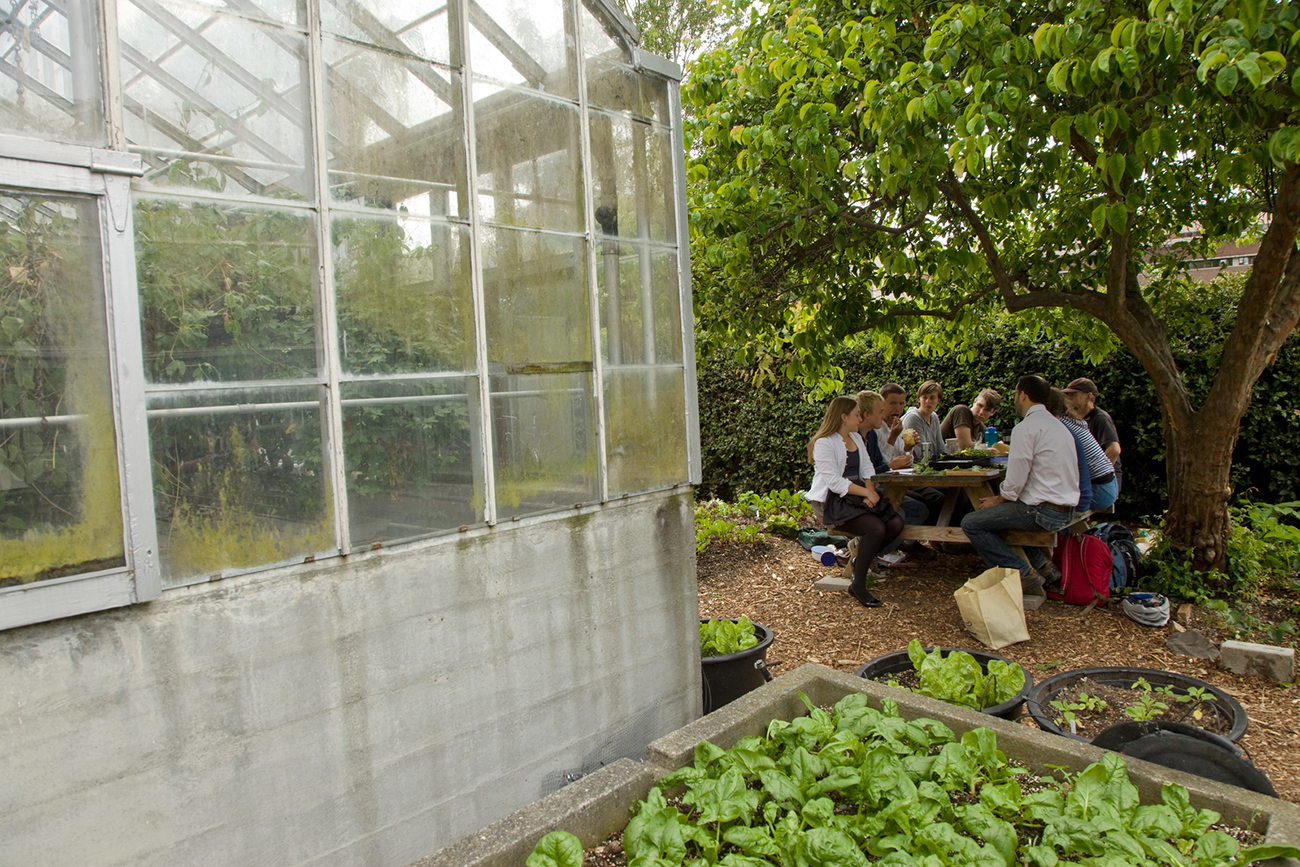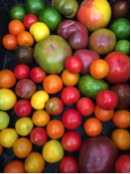
UW Farm is Looking for Volunteers!
The University of Washington farm is a center of education, community, and good old-fashioned hard work, disguised as playing in the dirt. In a nutshell, the farm’s goal is to  facilitate farming education and promote sustainability. It started seven years ago when a group of students, staff, and faculty came up with the idea of starting three beds at the Botany Greenhouses, which they carefully (and painstakingly, I’m sure, from my experience) double dug, just as an experiment and to get the ball rolling. The seed had no trouble germinating. Before long, the farm had become an incredible place to meet other like-minded individuals and be a part of a core group interested in studying how to grow food, why we choose to grow food certain ways, and what can be done to make it better. We now work at three different locations: The Botany Greenhouse (the original), the Center for Urban Horticulture (the most farm-y), and the Mercer Court Apartments (the urban site).
facilitate farming education and promote sustainability. It started seven years ago when a group of students, staff, and faculty came up with the idea of starting three beds at the Botany Greenhouses, which they carefully (and painstakingly, I’m sure, from my experience) double dug, just as an experiment and to get the ball rolling. The seed had no trouble germinating. Before long, the farm had become an incredible place to meet other like-minded individuals and be a part of a core group interested in studying how to grow food, why we choose to grow food certain ways, and what can be done to make it better. We now work at three different locations: The Botany Greenhouse (the original), the Center for Urban Horticulture (the most farm-y), and the Mercer Court Apartments (the urban site).
If you are looking to volunteer, here is a summer schedule! The UW Farm can accommodate up to 30 volunteers at a time. Check out food.washington.edu/farm or The UW Farm on Facebook for updates!
Monday: Mercer Court—8 a.m. to 12 p.m.
Botany Greenhouse—12 p.m. to 3 p.m.
Tuesday: Center for Urban Horticulture—8 a.m. to 3 p.m.
Wednesday: Mercer Court—8 a.m. to 3 p.m.
Thursday: Center for Urban Horticulture—8 a.m. to 3 p.m.
Friday: Mercer Court—8 a.m. to 3 p.m.
I wouldn’t give up my experience on the farm for anything. Not only does it feed my childish desire to work in the dirt, it has changed the way I look at food, this country, and the world. Being a part of a process so central to human life is not an experience that would just pass over your head. Something as simple as going to the grocery store has new meaning You look at a carrot and say, “Hey, I know what that seed looks like!” Or, you could think about how much nitrogen you know corn takes out of the soil, and how it is possible to grow corn on the same spot for a long period of time (spoiler alert: it can’t be done without inorganic help). One way or another, it will change your outlook on the world for the better. Also, we grow incredibly beautiful, tasty, and downright fantastic produce!
